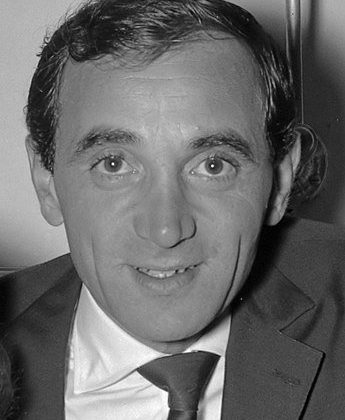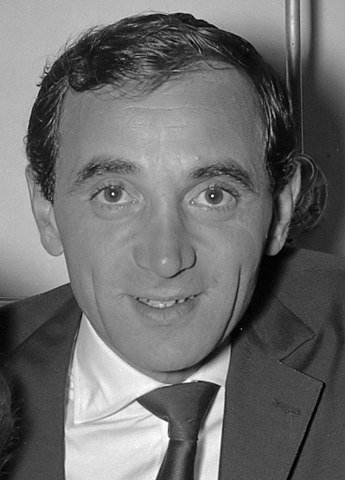

For two of my college years at the University of Virginia, I got to live in the French House, a beautiful historic mansion on the edge of campus. There were clear rules involved: all conversations in the house had to be in French. We also had to be at the house for dinner every weeknight, unless dinnertime conflicted with an evening class. (Alas, in case you’re wondering, dinner fare did not involve fine French cuisine. ‘Twas the same dining hall stuff that everyone else got.) It was during our first year in the house that my roommate and I developed an appreciation—okay, more like an obsession maybe—for the music of the legendary French bard, Charles Aznavour.
In Aznavour’s obituary in 2018, the New Yorker described him as “the world’s last and greatest troubadour.” To hear him sing seemed like a kaleidoscopic collision of bygone eras and music styles—early in his career, he got to sing with another legend, Edith Piaf!—with the present. His songs, to so many of which he wrote both the lyrics and the music, reflect this mix of longings for the past and a sense of living in the unfamiliar present. Child of refugees from the Armenian genocide, he was the first to admit that he was not exactly French. And yet, his music revolved around Paris, a city in which he saw that nostalgic collision of different time periods exemplified.
One example is the heart-wrenchingly lyrical “La bohème” reflecting on one’s long-gone starving artist’s youth in one Parisian neighborhood. Or one could name “J’ai vu Paris,” which (to a peppy 1970s disco-like tune) takes the listener through the history of Paris in the past three centuries or so. Aznavour, then in his fifties, originally recorded it for the aptly and nostalgically named album “Je n’ai pas vu le temps passer” (I didn’t notice the time go by). Perhaps in some ways he didn’t. But there was much more time yet ahead. Continuing to perform into his nineties, Aznavour just kept on writing and singing through the entire second half of the twentieth century and almost two decades of the twenty-first, performing in his final concert just weeks before his death at the age of 94.
But the song that came to mind this week, as I am turning another year older, is “Hier encore j’avais vingt ans” (the linked recording has subtitles) — “Just yesterday I was twenty.” When I first heard it, I was not yet twenty. Today, I am a bit over twice that. The time just flew by. “Je n’ai pas vu le temps passer” is an apt description here.
I’m no longer that carefree college kid living in the French House and whose main concern was finishing up Greek homework in time for next morning’s seminar. Instead, I have three kids of my own, one of whom is graduating from high school later this spring. These are real, live human beings who rely on me each day for their needs—snacks, teaching, advice, words of reassurance and comfort, a kiss for yet another scraped knee. Raising them is humbling, mind-boggling, and more than a little terrifying. It is also wondrous in a strangely indescribable way and is one the greatest joys of my life here on earth.
Life now is busy, exhausting, and low on sleep. My kitchen is now up to four different coffee-making devices. I use all of them regularly, although so far never all in the same day. College surely was a simpler time by comparison. Except, was college-aged me ever truly carefree? I remember the many anxieties of those college years, and yet I remember them in their shadow form. They almost do not seem real anymore, with half a lifetime’s distance.
Perhaps what I still love most about Aznavour’s songs, is that they reflect these anxieties of all the different stages of life in the here-and-now so well. Real tragedies happen. It seems so banal to say that tragedy is a part of life. And yet, it is. Other events happen that seem overwhelming and tragic at the time, but turn out to be nothing of the sort. In the meanwhile, the years keep rolling, and we somehow grow up, without fully noticing it. Only when we encounter traces of our past selves, do we, overcome with emotion, admit that indeed, “Non, je n’ai rien oublié” (no, I have forgotten nothing).
Whenever Dan and I make plans, he wisely brings up the notion of redeeming our time. This beautiful truth—that our time is not our own, but has been given us for a purpose—is one that brings real and lasting joy, but also accountability, in the passing of the years. Ecclesiastes was right, at the same time. There really is a time—a season—for everything. And this week, it’s time for cake.
A beautiful meditation. Happy birthday, Dr Williams .